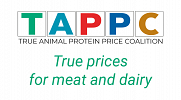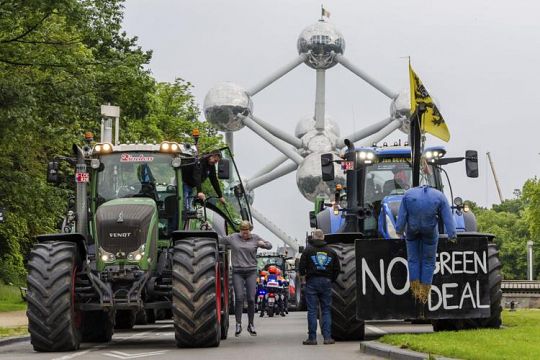Why the European Elections are Vital for Europe's Food and Agricultural System.
The European Elections will take place between 6-9th of June throughout the Member States of the European Union. Votes cast during this period will decide the future of the EU not only as an organisation, but also as an idea. Recent geopolitical events have irreversibly impacted the accessibility of healthy food and the state of the environment. Farmer protests on the Polish-Ukrainian border spread to the rest of the EU, which affected food supply chains of African countries. 2023 wildfires in Hawaii, flash floods in Brazil as well as Turkey-Syria earthquakes are a clear sign that immediate action in the agricultural and environmental sector is needed, and for that reason agriculture, climate and food policies will be at the forefront of the political debate. As TAPP, we believe that those elections will be pivotal for the sustainability and resilience of the agricultural systems, food security and climate policies. In this booklet, we’ll explore which parties we think align best with these goals and why their policies could lead to more favourable outcomes for our environment and food systems.
Political Parties
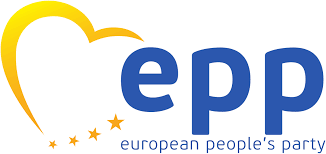
European People’s Party (EPP)
EPP was founded in 1976. It is currently the largest party in the European Parliament with 187 seats out of 720. As an alliance of mostly centre-right parties, EPP advocates for conservative, christian democratic and European integration policies.
EPP’s manifesto emphasises strong support for farmers and fishers, aiming to ensure the production of healthy, affordable food and maintain food security amidst global challenges. The EPP supports the simplification of Common Agricultural Policy (CAP) for meeting societal expectations on food quality, safety, and environmental protection. They also advocate for sustainable agriculture and fisheries, recognizing these sectors as strategic to Europe’s economy and cultural landscape. They also call for reforms to the Common Fisheries Policy (CFP) to address crises and sustainability in the fisheries sector. Additionally, the EPP opposes excessive bureaucratic burdens and advocates for the review of certain environmental regulations. Lastly, EPP has its own initiatives such as ‘EPP for Farmers’ which consist of targeted events in the Member States in order to further develop the dialogue with farmers and agricultural policy-makers across EU.’

Progressive Alliance of Socialists and Democrats (S&D)
S&D was founded in 1953 under the name Socialist Group. It is currently the second largest party in the European Parliament with 139 seats out of 720. The party is centre-left in its orientation, and it comprises mostly social-democratic and socialist parties.
S&D strongly supports the inclusion of the EU Green Deal and the Common Agricultural Policy (CAP) especially in regards to environmental stability and farmers’ well being. S&D also puts emphasis on aligning agricultural policies with climate and sustainability goals and at the same time promoting food security, all of which would be achieved through the Nature Restoration Law. Additionally, S&D prioritises the energy transition through sustainable farming practices, but also through support of local communities and commitments to reduction of greenhouse emissions. The political party has also a close relationship with farmer groups, which can be seen in its policies of supporting farmers in adapting to climate change; whilst at the same time putting biodiversity and Fit for 55 package as key elements of the EU agricultural sector.
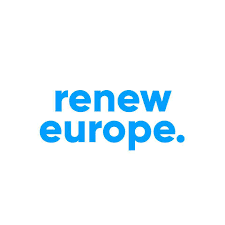
Renew Europe (Renew)
Renew Europe was first founded in 1953 as The Group of Liberals and Allies. This party consists of liberal and social-liberal parties, and is pro-European in its nature. It supports classical liberal policies in regards to the EU.
Renew Europe envisions a sustainable and innovative agricultural sector that supports both economic growth and management of the environment, primarily through the Common Agricultural Policy. The party advocates for modernising agricultural practices to enhance productivity while minimising ecological impacts. This includes promoting digital farming technologies, encouraging sustainable farming practices, and ensuring fair trade conditions for farmers. Renew Europe’s programme also puts emphasis on the importance of supporting small and medium-sized farms, which are an integral part of the agricultural sector. The party also calls for stronger policies to ensure food security, animal welfare, and the protection of biodiversity. Overall, Renew Europe’s plan envisions combining agricultural policies with climate targets with strong inclusion of farmers throughout the process.
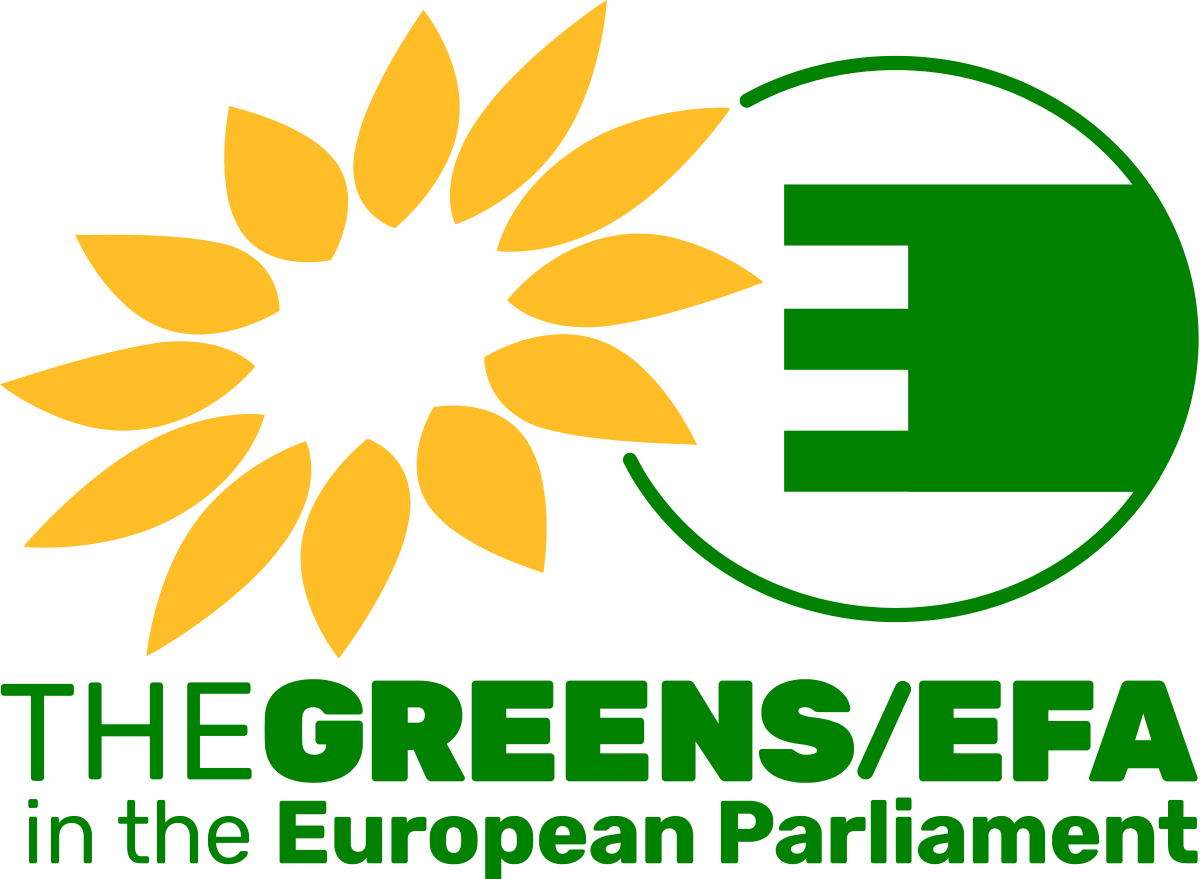
Greens/European Free Alliance (EFA)
EFA is a relatively new party, formed in 1999. As the name says, it is composed of green and regionalist parties, with focus on progressivist ideas.
Greens/EFA advocate for a comprehensive approach to agriculture that prioritises sustainability, environmental protection, and climate action. This party’s manifesto emphasises the importance of transitioning towards climate-friendly farming practices, such as organic farming, agroecology, and regenerative agriculture, to mitigate the sector's contribution to climate change. The Greens/EFA support measures to reduce agricultural emissions, such as improving livestock management, reducing fertiliser use, and increasing carbon sequestration in soils. The Greens/EFA's stance on agriculture reflects a commitment to promoting environmental sustainability, combating climate change, and strengthening resilient food systems.

Identity and Democracy (ID)
ID was first born in 2015 as Europe of Nations and Freedom. Today, the member parties of ID are primarily nationalist, right-wing, eurosceptic and populist in nature.
Although ID lacks a proper page dedicated to which policies they support, it can be implied that they support a more conservative stance on agricultural, climate and food issues, prioritising national sovereignty and economic interests over environmental issues. ID is opposed to ideas such as the EU Green Deal or Nature Restoration Law, instead prioritising protectionist measures and financial aspects, but it is not clear what is the party’s concrete stance on these issues. Important initiatives such as CAP, ETS or VAT amounts are omitted in the ID’s agenda.
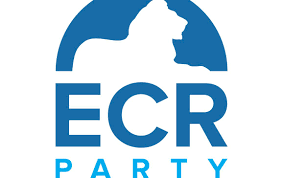
European Conservatives and Reformists (ECR)
ECR came to be in 2009, and it is currently composed of nationalist and conservative parties, with liberal and eurosceptic factions.
The ECR's view on agriculture puts national sovereignty and subsidiarity in policymaking as priorities, which reflects their conservative principles. They advocate for a balanced and localised approach to climate strategy that supports ordinary farmers, breeders, and fishermen, as well as citizens and businesses; they do not however explicitly mention how that would be achieved. The party opposes the Green Deal's current direction and calls for a more considerate approach that takes into account socio-economic well-being and addresses the concerns of agricultural stakeholders. Additionally, the ECR supports better global trade relations to reduce dependencies and strengthen competitiveness in the agricultural sector.
European Left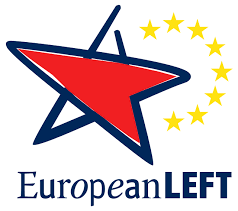
European Left was formed in 2004, and it operates as an association of democratic socialist and communist parties in the European Union.
The Party of the European Left wants to change the EU's agricultural policy in order to support eco-friendly farming. They aim to move away from funding based solely on land area and instead focus on sustainable agriculture practices. They support small-scale farms that prioritise soil protection, local food production, and fair incomes for farmers. Their goal is to make agriculture more environmentally friendly while ensuring rural areas remain attractive places to live and work. Moreover, the European Left also wants to include biodiversity considerations in all agricultural policies to protect ecosystems and promote sustainable land use.
TAPP Coalition's Position
Now that we know each political group’s policies, which best represents the interests of the TAPP coalition? Recent polls by politico show that EPP is heading with 172 seats, followed by S&D with 143 seats and Renew Europe in third place at 75 seats. Does that mean you should vote for either of those top three parties? That depends.
As TAPP, we firmly believe that the EU elections in 2024 will shape the trajectory of climate, agriculture and food policies for the upcoming decade. As EU citizens, we have a crucial responsibility to elect leaders who will prioritise eco-friendly practices in farming, advocate for healthy and transparent food systems, but also leaders that will fight climate change.
That does not mean that there is a single answer. There is not a single perfect political party or leader that will do everything that is needed to be done. However, we have the right to choose and it should be our duty to exercise that right as EU citizens.
Firstly, most EP parties seem to agree on agricultural sustainability, but also the need to transition to green energy and fight climate change. The differences arise in how to achieve those goals, through which methods; but also in the priority of those issues, for some parties value political or economic issues over environmental ones.
An example of such a political group is Identity and Democracy, which offers no specific solutions or even policies on agricultural matters, and hence we discourage voting for this organisation if agricultural interests are at your heart.
Other groups, such as ECR and European Left pursue systemic changes in the functioning of the EU in order to tackle environmental issues. They also consider the economic well-being of the agricultural sector and its workers, but only indirectly through umbrella concepts such as ‘ecology’ or ‘environment’ as listed on their websites.
Bigger groups like the EPP or S&D focus on political solutions such as the Green Deal or Nature Restoration Law, aiming to address food and agricultural issues through legislation but also social connections, which can be visible in S&D’s relationship with ecological groups or EPP’s trans-border influence.
The two most relevant parties of Greens/EFA and Renew Europe seem to prioritise food and environment-related issues. The disparity between them is visible in their approach; Renew Europe holds a very technical approach to the problem and combines climate change with agricultural needs, but also the need of modernising the agricultural sector. Greens/EFA on the other hand focus on more practical solutions such as agroecology, land use and ecological policies.
Lastly, the changes to the seat count will affect the power of the political groups. EPP and S&D will remain at their levels, but Renew Europe is set to lose 27 seats whilst Greens/EFA 31 seats according to the recent politico poll of polls. There will be around 56 new unaffiliated seats, which means more room for compromises and dialogue for all groups within the parliament.
Each party took interest in CAP, though to a limited degree. As TAPP, our mission is to ensure fair prices and taxes to make the production and consumption of meat and dairy more sustainable, and we see VAT on healthy food and agriculture in the ETS as primary ways of achieving our goals.
Given this information, as TAPP we encourage You to vote for Renew Europe or Greens/EFA. Renew Europe offers a strong plan for supporting small and medium-sized farms, whilst also emphasising the Common Agricultural Policy and food security, which reflects our goals as TAPP. Greens/EFA on the other hand take a more practical approach; the party’s manifesto extensively mentions the need for changes in organic farming, soil usage or fertiliser use. Nevertheless, as mentioned before, every party has its points and whether you are a farmer, a business owner or a social activist your goals will vary and accordingly, the parties that will align with you.
Thank You for reading this booklet, but most importantly, Cast Your Vote!
